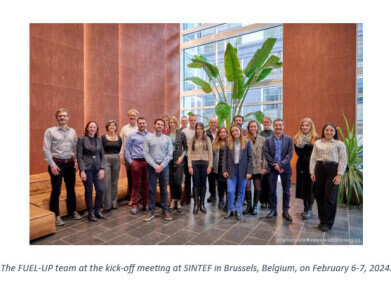Sustainable aviation fuel (SAF)
Can animal fat biofuel turn aviation green?
Aug 01 2023
Recent developments in the aviation industry have turned a spotlight on an unexpected resource—animal fat—as a potential source of biofuel. This unexpected, and somewhat controversial, solution is due to a mounting interest in green energy alternatives. However, according to a study conducted by environmental campaigners, Transport and Environment (T&E), the proposition may have more cons than pros when it comes to environmental impact.
The fat derived from livestock such as pigs and cows is fast becoming a resource for creating biofuel, touted as an eco-friendlier option to power aircraft and vehicles. However, contrary to popular belief, this practice may not be as green as initially assumed. The T&E study suggests that this novel fuel source could potentially have a more significant adverse impact on the environment than conventional jet fuel.
It's important to note that animal fat's usage in biodiesel has skyrocketed in the past decade. It has seen an increase by fortyfold since 2006, with projections indicating demand will triple by 2030 in comparison to 2021 levels. However, this demand raises some pertinent questions about the sustainability of this strategy.
One of the main concerns lies in the finite nature of the resource. Animal fat, primarily procured as waste from slaughterhouses, has already found various applications in industries such as cosmetics, pet food, and candle-making. The sudden increase in demand from the aviation sector could lead to a shortfall in supply for these industries.
To put the scale of the requirement into perspective, an intercontinental flight from Paris to New York would require the fat derived from roughly 8,800 pigs, as per T&E's calculations. This significant figure underscores the fact that the usage of animal fat, although just one part of the multifaceted puzzle of sustainable fuel, could place undue pressure on supply chains.
Matthew Finch from T&E, in conversation with Sky News, explained, "Dead animals don't grow on trees. Therefore, if aviation suddenly needs a lot of animal fats for its fuels, other sectors will have to look elsewhere."
Indeed, other sectors may turn to the readily available palm oil to bridge the gap. However, the use of palm oil has its own environmental repercussions. Since the current palm oil supply is fully utilized, an increase in demand could lead to more deforestation for palm oil plantations, further exacerbating environmental issues.
Using virgin palm oil as a substitute for animal fats could in fact increase the CO2 emissions of animal fat biofuels by up to 1.7 times compared to conventional diesel, the research suggests. Such a shift could significantly undermine the climate benefits initially attributed to animal fats biofuels.
Several regulatory authorities, including the EU, are formulating guidelines that would allow the use of animal fats in sustainable fuels. While the UK is contemplating plans to cap animal fats at a maximum of 2%, or ban them outright, these proposals bring to light the potential strain on other industries reliant on waste products.
Finch advocates for the adoption of "green" hydrogen—derived from clean electricity and carbon capture at industrial sites—as a more environmentally friendly alternative. However, it's worth noting that this solution is currently limited by its high cost and limited supply.
Sustainable Aviation, the UK aviation industry's sustainability coalition, considers sustainable aviation fuels (SAF) a practical solution for decarbonizing UK flights. They argue that these fuels, derived from various rigorously certified feedstocks, are sustainable, do not interfere with food production, and the UK has enough feedstock for SAF use to achieve net zero by 2050.
While the idea of using pig fat as green jet fuel is innovative, experts warn that this could have negative impacts on the environment. As the demand for fuel made from animal by-products is expected to triple by 2030, there are concerns that this trend will force other industries to increase their usage of palm oil, a significant contributor to carbon emissions.
Despite the promise of green energy alternatives, these revelations serve as a reminder that all potential solutions must undergo rigorous evaluation to ensure they do not cause more harm than good. Only then can the shift to sustainable fuels truly contribute to the fight against climate change.
Digital Edition
PIN 25.5 Oct/Nov 2024
November 2024
Analytical Instrumentation - Picturing Viscosity – How Can a Viscometer or a Rheometer Benefit You? - Sustainable Grease Formulations: Evaluating Key Performance Parameters and Testing Method...
View all digital editions
Events
Jan 20 2025 San Diego, CA, USA
Jan 22 2025 Tokyo, Japan
Jan 25 2025 San Diego, CA, USA
SPE Hydraulic Fracturing Technology Conference and Exhibition
Feb 04 2025 The Woodlands, TX, USA
Feb 05 2025 Guangzhou, China



















